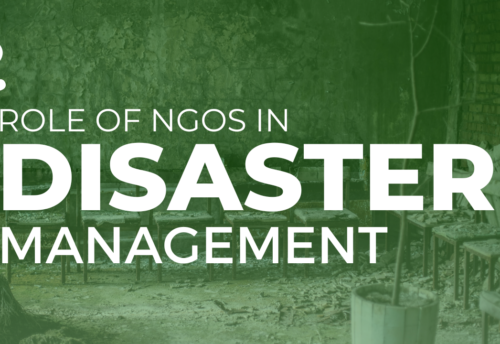- July 4, 2025
- Nirmala Foundation
- 0 Comments
- 34 Views
- 0 Likes
- Uncategorized
NGO Support for Child Treatments and Vaccinations in India
Every child’s health in their early years lays the foundation for their future. Yet, many families in India struggle with soaring medical costs, limited access to vaccines, and logistical barriers. Non-Governmental Organizations (NGOs) step in to bridge these gaps, offering critical preventive care like vaccinations and curative treatments for various ailments. This article explores the challenges of child healthcare in India, the role of NGOs in providing medical and vaccination support, and actionable steps for parents to access these services.
Why Access to Child Healthcare is Still a Challenge in India
Access to quality healthcare for children remains a significant hurdle in India due to multiple factors:
- Lack of Awareness: In rural and semi-urban areas, many parents are unaware of essential healthcare services or the importance of timely vaccinations.
- High Costs: Private hospitals often charge exorbitant fees for treatments, making them unaffordable for low-income families.
- Vaccination Shortages: Some regions face inconsistent supply or accessibility to government vaccination programs.
- Social and Logistical Barriers: Misinformation, social stigmas around certain treatments, and challenges like transportation to healthcare facilities further complicate access.
What Kind of Medical Support Do NGOs Provide for Children?
NGOs play a vital role in delivering accessible healthcare to children, addressing both preventive and curative needs:
- Free or Subsidized Treatments: From routine checkups to complex surgeries, NGOs offer financial aid for conditions like malnutrition, respiratory infections, or congenital heart defects.
- Health Camps: Organized in rural areas, these camps provide screenings, diagnostics, and basic treatments.
- Referral Services: NGOs often facilitate access to hospitals or provide ambulance services for critical cases.
- Counseling Services: Psychological support for children and nutritional guidance for parents ensure holistic care.
- Emergency Aid: Immediate interventions for life-threatening conditions like severe infections or trauma.
Common ailments addressed include malnutrition, tuberculosis, diarrhea, and cardiac conditions, ensuring children receive timely care.
Understanding Child Vaccination Support
Vaccinations are a cornerstone of preventive healthcare, protecting children from life-threatening diseases. NGOs play a critical role in this space:
- Why Vaccinations Matter: Following the immunization timeline (e.g., BCG at birth, DPT at 6 weeks, MMR at 9 months) prevents diseases like tuberculosis, diphtheria, and measles.
- Supported Vaccines: NGOs typically facilitate access to BCG, Polio, DPT, Hepatitis B, MMR, and Rotavirus vaccines, among others.
- Coordination with Programs: Many NGOs partner with government initiatives like Mission Indradhanush or WHO-backed campaigns to ensure vaccine availability.
- Enrollment in Drives: Parents can contact local NGO offices, health camps, or government health centers to enroll in vaccination programs.
- Mobile Health Vans: These vans and door-to-door campaigns bring vaccines to remote areas, improving accessibility.
How to Check if Your Area Has NGO Vaccination Programs
- Check online directories like GuideStar India or local government health portals.
- Visit nearby Anganwadi centers or connect with ASHA workers for updates on vaccination drives.
- Look for announcements on community boards or NGO websites for upcoming health camps.
How to Get Help from an NGO for Child Treatments
Parents seeking NGO support for their child’s healthcare can follow these steps:
- Where to Start: Use online directories (e.g., NGO Darpan), visit local NGO offices, or attend health camps in your area.
- Required Documents: Typically, NGOs ask for a child’s birth certificate, parent’s ID, income proof, or medical records.
- Registered vs. Informal NGOs: Opt for registered NGOs with transparent operations to ensure reliability.
- Eligibility Criteria: Some NGOs prioritize low-income families or specific medical conditions, assessed via income documents or medical evaluations.
Tips for Parents Seeking Free Medical or Vaccination Aid
To maximize access to NGO support:
- Verify NGO Authenticity: Check registration details on platforms like NGO Darpan or read reviews from other beneficiaries.
- Prepare Documents: Keep medical records, vaccination cards, and identity proofs ready for quick processing.
- Stay Proactive: Monitor local announcements for limited-period health camps or vaccination drives.
- Leverage Local Resources: Connect with ASHA workers or Anganwadi centers for information on nearby NGO activities.

Government Schemes and NGO Collaboration
Government schemes and NGOs work together to enhance child healthcare access:
- Key Schemes: Mission Indradhanush (vaccination coverage), Ayushman Bharat (health insurance), and Rashtriya Bal Swasthya Karyakram (RBSK) (child health screenings).
- NGO Role: NGOs raise awareness, mobilize communities, and provide logistical support like transportation to health centers.
- Bridging Gaps: By partnering with government programs, NGOs ensure underserved children benefit from these schemes.
How You Can Support or Contribute to This Cause
For those interested in supporting child healthcare initiatives:
- Volunteering: Assist with awareness campaigns, logistics, or documentation at health camps.
- Donations: Contribute money, medicines, or equipment to verified NGOs.
- Choosing NGOs: Platforms like GiveIndia or direct contributions to organizations like the Nirmala Foundation ensure your support reaches credible causes.
Every Child Deserves a Healthy Start
Access to timely treatments and vaccinations is critical for a child’s growth and future. NGOs in India are making significant strides in addressing healthcare gaps, offering hope to families in need. Parents should feel empowered to seek help, as numerous organizations are ready to assist. Reaching out to a local NGO or health worker is the first step toward ensuring your child’s healthy start.



Leave a Comment